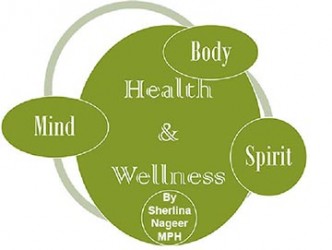We hear the stories all the time. Woman battered to death. Sometimes—rarely—it’s a shock. More often, afterwards, the family and neighbours invariably say, “Yes, they used to fight a lot. He would beat her.” Sometimes people try to help, but too often, they don’t. “Oh, that’s man-woman story; I’m not getting involved. I don’t want any problems.” Fear of being victimized themselves also keeps many people from acting.
 We see the beatings all the time. Parents hitting and shouting at their children. At the market. In the bus. On the street. In the next yard. We look and then, too often, we look away. We don’t want to get ‘bused ourselves, after all, nobody enjoys getting shouted at. “Mind your own business and don’t tell me how to handle my child!” is a common response of the offending parent.
We see the beatings all the time. Parents hitting and shouting at their children. At the market. In the bus. On the street. In the next yard. We look and then, too often, we look away. We don’t want to get ‘bused ourselves, after all, nobody enjoys getting shouted at. “Mind your own business and don’t tell me how to handle my child!” is a common response of the offending parent.
Violence is epidemic in Guyana today. It is, in fact, one of the major societal ills of our time. From children “getting licks” and domestic violence, to police brutality, rape, assault, and other acts of interpersonal aggression, violence is an everyday event in Guyana. Violence against self—such as physically mutilating one’s body and engaging in self-harming behaviours like overconsuming alcohol and other drugs—is also widespread, with suicide, the ultimate form of self-inflicted violence, making us infamous worldwide.
Worldwide, homicide is the third leading cause of premature death of boys and men between the ages of 15 and 44, and the tenth for women in the same age range. But even when violence does not result in death, the impacts are still staggering. Experiencing violence can leave injuries that last a lifetime, from physical disabilities to mental affliction that can affect the ability to form healthy relationships, function normally, and be a productive, contributing member of society. One report from the World Health Organization found that “most violence resulted in non-fatal injuries, mental health problems and reproductive health problems, sexually transmitted diseases, and other problems.”
No one is born violent; it is learned behaviour. (There is some interesting recent research however, that shows that memories of trauma can persist in one’s DNA and get transmitted to offspring, affecting their behaviour.) The environment that a child is raised in and the experiences they have during the first five years of their life plays a crucial role in shaping patterns that can last throughout the rest of one’s lifetime. Being exposed to violence during these formative years—even if it is just witnessed and not directly experienced—can have a significant negative impact on children’s healthy development. Research has also shown that children who experience violence and who do not receive adequate therapy, care, and support (as is the case in Guyana) do not do as well academically, and may develop antisocial attitudes leading to long-term problems. The reality is that many of the hardened criminals terrorizing the Guyanese populace today were themselves terrorized by violence during their childhood; in effect, victims who became victimizers.
The fact is that violence is not somebody else’s problem but an issue that affects the entire society. We all pay dearly every time there is a violent incident. From a financial standpoint, violence lowers productivity by incapacitating and removing individuals from the workforce, and diverts resources away from other initiatives that could benefit society more positively. Psychologically speaking, living in a society where violence is endemic makes one always fearful, which in turn elevates stress hormones. Stress has been linked to many illnesses, both physical and mental, including high blood pressure, heart disease, alcohol abuse, insomnia, obesity, depression, and lowered immune functioning—again, all of which are commonplace in Guyana today.
Violence may not ever be totally eradicated, but unless it is recognized and addressed as the root cause of many societal ills, we will continue going in futile circles, wondering why our actions are not having the desired effect. The fact is that some of our core societal values need changing, beginning with how we raise children. Corporal punishment must be abolished in all schools, private as well as public, and compulsory classes in conflict resolution and mediation introduced for both adults and children. The culture of bullying and “big and bad-ism” must be eradicated in all levels of the public as well as private sector. Love for self and others must become common practice, with concrete examples evident in action, not just given lip service.
Last but not least, we all need to become our brothers and sisters’ keepers. We must ‘mind one another’s business’. We must act whenever we see violence being perpetrated upon another living creature, human or animal. As the famous line in Martin Carter’s poem states- “All are all involved/All are consumed.” In cases of abuse and violence, intervention from outsiders can sometimes mean the difference between life and death. Child victims of violence, especially, need adults to intervene on their behalf as they are less capable of defending themselves.
But adults also need help from other caring adults. Often, experiencing violence over an extended period of time can erode one’s self esteem and belief in one’s ability to improve one’s life circumstances. Being reared in a culture of violence can also warp an individual’s understanding of what is acceptable and unacceptable; time must be spent re-educating people and re-awakening their capacity for self-love and agency, empathy, and civic mindedness.
Those who observe violence from the sidelines but do nothing to change the situation for the better are equally culpable as the perpetrators of the violence. We cannot simply look on, sigh, point fingers, bow our heads in shame, or weep afterwards. There is no such thing as an innocent bystander. You are either a part of the solution or a part of the problem, it’s as simple as that. Yes, there are risks to getting involved, but there is also a responsibility to act. Sometimes the action may be as simple as speaking up; other times, it may need to be more extensive. But act we must.
Sherlina can be reached at ssnageer@yahoo.com.




